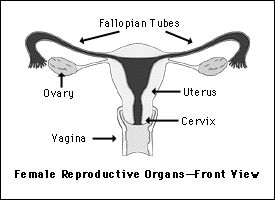An overview of Amenorrhea
What is Amenorrhea?
Amenorrhea is the absence of menstruation, often defined as missing one or moremenstrual periods.
There are times when you’re not supposed to get your period, such as before puberty,during pregnancy and after menopause. If amenorrhea lasts for more than threemonths, it should be investigated.

What are the types of amenorrhea?
There are two classifications of amenorrhea:
Primary amenorrhea : is when you haven’t gotten a first period by age 15 orwithin five years of the first signs of puberty. It can happen due to changes inorgans, glands and hormones related to menstruation.
Secondary amenorrhea : is when you’ve been getting regular periods, but youstop getting your period for at least three months, or you stop your menses for sixmonths when they were previously irregular. Causes can include pregnancy, stress andillness.
What causes Amenorrhea?
The different types of amenorrhea have different causes.
Common causes of primary amenorrhea include:
1. Chromosomal or genetic problem with the ovaries (the female sex organs that holdthe eggs).
2. Hormonal issues stemming from problems with the hypothalamus or the pituitarygland.
3. Structural problem with the reproductive organs, such as missing parts of thereproductive system.
Common causes of secondary amenorrhea include:
1. Pregnancy (which is the most common cause of secondary amenorrhea).
2. Breastfeeding.
3. Menopause.
4. Some birth control methods, such as Depo Provera, intrauterine devices (IUDs) andcertain birth control pills.
5. Chemotherapy and radiation therapy for cancer.
6. Previous uterine surgery with subsequent scarring (for example, if you had adilation and curettage, often called D&C).
Signs and symptoms of Amenorrhea?
The main symptom is the lack of periods. Other symptoms depend on the cause. You mayexperience:
Milky nipple discharge
Hair loss
Headache
Vision changes
Excess facial hair
Pelvic pain
Acne
How can I prevent amenorrhea?
Living a healthy lifestyle can help prevent some causes of secondary amenorrhea. Tryto:
1. Maintain a healthy weight and eat a healthy diet.
2. Be aware of your menstrual cycle (so you’ll know if you miss a period).
3. Get regular gynecological appointments, including having a pelvic exam and Paptest.
4. Get regular and adequate sleep.
How is amenorrhea diagnosed?
If you miss a period, contact your healthcare provider. Your provider will ask youabout your symptoms and medical history. If amenorrhea occurred because ofpregnancy, you can start prenatal care. If it’s happening because of menopause,there is help if symptoms are uncomfortable. Missed periods leading to menopauseusually begin in your 40s. Your provider will perform a physical exam and a pelvicexam.
Your healthcare provider may want to do some tests, including Pregnancy test, Bloodtests to check hormone levels and detect thyroid or adrenal gland disorders, Genetictesting, if you have primary ovarian insufficiency and are younger than 40, or MRI,if your provider suspects a problem with the pituitary gland or hypothalamus.
How is amenorrhea treated?
If your period stopped because of menopause or pregnancy, your provider will not needto treat it. In other cases, your treatment will depend on the cause and mayinclude:
1. Losing weight through dieting and exercise (if excess weight is the cause).
2. Gaining weight through an individualized diet plan (if extreme weight loss is thecause).
3. Stress management techniques.
4. Changing exercise levels.
5. Hormonal treatment (medication), as prescribed by your healthcare provider.
6. Surgery (in rare cases).
Will I need surgery for amenorrhea?
Surgery for amenorrhea is rare. Your healthcare provider may recommend it if youhave:
1. Genetic or chromosomal problems.
2. Pituitary tumor.
3. Uterine scar tissue.
Frequently Asked Questions About Amenorrhea
Typically, your period will return once you treat theunderlying cause. However, it may take time to become regularagain.In some cases, you may have a health problem that meansyou’ll never have a period. If that is the case, your providercan talk to you about fertility options if you wish to have ababy.
Amenorrhea is not life-threatening. However, somecauses may lead to increased risks over the long term, soamenorrhea should always be evaluated. Researchers have found agreater risk of hip and wrist fractures in people withamenorrhea. You may also be at high risk for bone thinning andfertility difficulties.
Your particular outcome will depend on the cause. Forexample, if you have PCOS, you will likely need lifelong care toprevent health complications and to establish regular cycles.
Amenorrhea can affect bone health. It’s important toeat a calcium-fortified diet and exercise regularly.